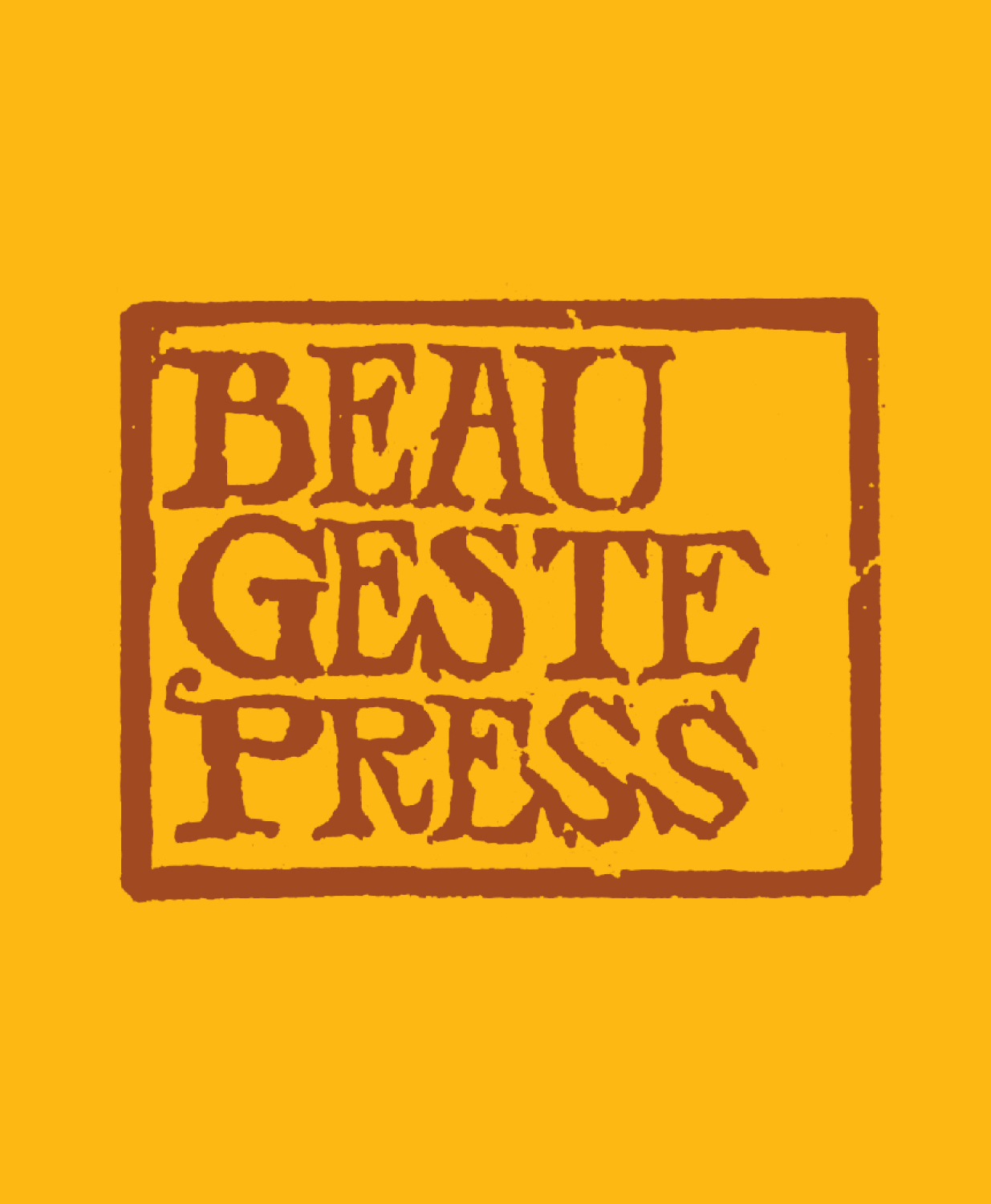The “catalogue dé-raisonné” of all the printed matter produced by the independent publishing house Beau Geste Press, that federated visual poets, neo-Dadaists and international artists affiliated with the Fluxus movement from 1971 to 1976.
The independent publishing house Beau Geste Press (BGP) was founded in 1971 by the Mexican artists' couple Martha Hellion and Felipe Ehrenberg. Together with their two children, they moved into a farmhouse in Devon, in the English countryside, where, joined by a group of friends including the artist and art historian David Mayor, the graphic designer Chris Welch and his partner Madeleine Gallard, they formed 'a community of duplicators, printers, and artisans'.
Beau Geste Press was active until 1976, printing publications by visual poets, neo-Dadaists and international artists affiliated with the Fluxus movement. Specialising in limited-edition artists' books, it published the work of its own members, but also that of many of their colleagues worldwide. In the spirit of cottage industry, Beau Geste Press adapted its methods and scale of production to its needs, keeping all stages, from design and printing to distribution, under the same—bucolic—roof.
Although it operated from the periphery of the main artistic centres of its time, Beau Geste Press was undoubtedly one of the most productive and influential publishing ventures of its generation.
Published by the CAPC musée d'art contemporain de Bordeaux in collaboration with Bom Dia Boa Tarde Boa Noite, this reference book surveys the history of the independent publishing house Beau Geste Press (BGP) through the publications of its founding members Felipe Ehrenberg, Martha Hellion, David Mayor and Chris Welch, and of the numerous visitors to its rural outpost from 1971 to 1976. A “catalogue dé-raisonné” of all the printed matter produced by BGP, it is complemented by critical essays and first-hand texts that explore the working methods (economy and autonomy of production, distribution of books via post) and document the international influence of this short-lived “community of duplicators, printers, and artisans”.
Essays by Karen Di Franco, Zanna Gilbert, Polly Gregson, Carmen Juliá, Alice Motard, Mila Waldeck ; original texts by Allen Fisher, Mike Leggett, Clive Phillpot, Cecilia Vicuña.
Editions by Claudio Bertoni, Ulises Carrión, Helen Chadwick, GJ de Rook, Felipe Ehrenberg, Matthias Ehrenberg, Yaël Ehrenberg, Allen Fisher, Ken Friedman, Mick Gibbs, Klaus Groh, Kristján Guðmundsson, Mary Harding, Woody Haut, Jan Hendrix, Jarosław Kozłowski, Myra Landau, Michael Leggett, Rafael López, Raúl Marroquin, Pepe Maya, David Mayor, Anthony McCall, Victor Musgrave, Opal L. Nations, Colin Naylor, Michael Nyman, Ryo & Hiroko Koike, Takako Saito, Carolee Schneemann, Sitting Dog & Co, Endre Tót, Yukio Tsuchiya, Ben Vautier, Cecilia Vicuña, Chris Welch, Hideki Yoshida...
Each book is accompanied by five unprecedented bookmarks.






